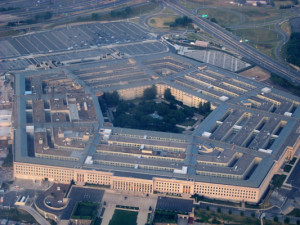
The Defense Business Board at the Pentagon has just proposed what is considered the largest overhaul of the military retirement system in 50 years.
The proposed plan would include yearly retirement contributions if service members serve 20 years in the military.
These contributions would not start until the amount of service reaches the three to five year mark and the retirement pay would not be paid out until retirement age. If the three to five year mark is not reached, the retirement pay received would roll over into social security.
The contributions would be deposited into a mandatory 401k-type account called the “Uniformed Military Personnel Thrift Savings Plan,” which is at the moment voluntary for federal employees.
This would allow the personnel to choose once a year how they could invest the money into somewhat safe choices in order to gain the maximum retirement yield. Members in combat zones will have extra money contributed.
This is in contrast with the current system of military retirement benefits where if 20 years is served, the service member can retire at 50 percent of their pay in the last 36 months of their employment in the military. The Defense Business Board has also stated that there could be a hybrid system where some cash is paid out but some invested.
While Defense Secretary Leon Panetta has called the new plan “the kind of thing you have to consider,” there has been some harsh criticism of the new proposed plan.
The most common argument is that as a 401k system, there is no protection from drastic market fluctuation so service members would in fact be getting less retirement and there will be less incentive to join the military.
“The whole issue here with this plan is about saving money, not maintaining the viability of the force,” said Joe Davis, director of public affairs for the Veterans of Foreign Wars. “And where will our future military leaders come from if people leave the service early because they’re losing retirement money. We rely on the veteran service people to train the next generation in the military, so who’s going to do that job?”
Retired Gen. Bob Scales called the proposal “a bad deal.”
“That’s why the military retirement system was structured the way it was structured because war is a young man’s game,” Scales said. “We reward those who sacrifice when they’re young. And the reward is when they retire, they are given a decent retirement pay to carry them over the time they leave the service, and this of course would just remove that.”
So far, there is no specific plan set in stone remains to be seen what plan the Defense Department will choose and how it will affect the nation’s military.










